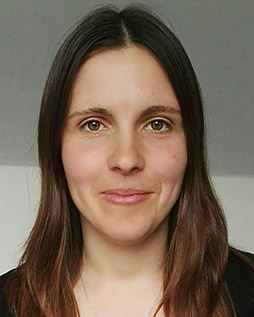
Vera Slavtcheva-Petkova is research lead and Professor of Journalism Innovation at City, University of London. She previously held academic staff posts at the University of Iowa and Colorado State University in the US, and served for three years as Johnston Press Chair in Digital Journalism at the University of Central Lancashire in the UK. A former print and online journalist, her research has traced the evolution of digital journalism since the mid-1990s, with a focus on journalists’ changing roles, perceptions, norms and practices.
DJRG Fellow, November 2019
In order to capture a range of risks journalists face around the world, the third wave of WJS will include a question measuring journalists’ perception of the degree of media freedom in their countries as well as a series of questions on journalists’ safety. We conceptualize safety as three-dimensional, encompassing physical, psychological/emotional, and occupational aspects. While digital safety is an important dimension of safety, we will not treat it separately. Journalists will be asked to indicate how safe they feel in their work as well as whether they have experienced a range of threats in their work – from physical attacks and sexual harassment to threatening messages and cyberattacks. Our approach to measuring risk and uncertainty is holistic; we account not only for the different types of risks but also for the interrelation between risks, threats, and journalists’ resilience and, consequently, their ability to serve the societies they work in. Our presentation is a welcome opportunity to solicit preliminary feedback on our approach and measures, which will allow us to further improve our research tools.
Title and abstract
Journalism under threat: Towards a systematic investigation of journalists’ perceptions of risk in 110 countries
Journalists, news organisations and the institution of journalism face increased levels of risk and uncertainty to the extent that scholars started proclaiming the ‘death’ or ‘end’ of journalism (Charles & Stewart, 2011; McChesney & Nichols, 2010). While there are numerous studies investigating different aspects of risks and uncertainty, there is no study or approach that systematically, and comparatively, investigates risks and uncertainly in journalism on the level of perception. This is a gap that the third wave of the Worlds of Journalism Study (WJS) aims to fill. WJS is an ongoing collaborative project assessing the state of journalism around the world. The second wave (2012-2016) of the study has covered 67 countries, and the forthcoming third wave (2020-2022) is going to include more than 110 countries.
Based on a literature review, we argue that risks emanate from four interrelated sources: politics, economy, technology, and culture. Political risks include the increase in hostility towards journalists both in authoritarian regimes and liberal democracies, which has contributed to a decline in press freedom. Safety threats against journalists, including those perpetrated in the online space, have also increased across different contexts. Economic risks stem from increased economic pressures on news organizations as a result of, among others, economic downturn, the collapse of journalism’s traditional business model, and changes in the economics of news production brought about by the advent of the Internet. The changing digital environment, with a crucial role of social media platforms, constitutes a new risk critical to journalism’s future. Technological risks are linked to new potentials for public participation and new types of actors in communication processes, such as algorithms and social bots. These changes have contributed to a networked news ecosystem that gives political, commercial and other entities the opportunity to bypass journalism and to address audiences directly. This in turn has led to an erosion of professional journalism’s power as an intermediary institution (Vos, 2019). Cultural risks, finally, relate to the erosion of public support for the press and the rise of hate groups that target journalists in many countries.
In order to capture a range of risks journalists face around the world, the third wave of WJS will include a question measuring journalists’ perception of the degree of media freedom in their countries as well as a series of questions on journalists’ safety. We conceptualize safety as three-dimensional, encompassing physical, psychological/emotional, and occupational aspects. While digital safety is an important dimension of safety, we will not treat it separately. Journalists will be asked to indicate how safe they feel in their work as well as whether they have experienced a range of threats in their work – from physical attacks and sexual harassment to threatening messages and cyberattacks. Our approach to measuring risk and uncertainty is holistic; we account not only for the different types of risks but also for the interrelation between risks, threats, and journalists’ resilience and, consequently, their ability to serve the societies they work in. Our presentation is a welcome opportunity to solicit preliminary feedback on our approach and measures, which will allow us to further improve our research tools.
Selected publications
- Bromley, Michael and Slavtcheva-Petkova, Vera. (2018). Global Journalism: An Introduction. Palgrave. https://www.macmillanihe.com/page/detail/Global-Journalism/?K=9781137604033
- Slavtcheva-Petkova, Vera. (2018). Russia’s Liberal Media: Handcuffed but Free. Routledge. https://www.routledge.com/Russias-Liberal-Media-Handcuffed-but-Free-1st-Edition/Slavtcheva-Petkova/p/book/978113823728
- Slavtcheva-Petkova, Vera. (2018). “Post-truth” politics, journalistic corruption and the process of self-othering: The case of Bulgaria. Journalism Studies, 19(13), 1980-1990. doi: 10.1080/1461670X.2018.1500869
- Slavtcheva-Petkova, Vera. (2017). Fighting Putin and the Kremlin’s grip in neo-authoritarian Russia: The experience of liberal journalists. Journalism, doi:10.1177/1464884917708061
- Slavtcheva-Petkova, Vera. (2016). “We are not fools”: Online news commentators’ perceptions of real and ideal journalism. International Journal of Press/Politics. 21(1), 68-87. 10.1177/1940161215612203